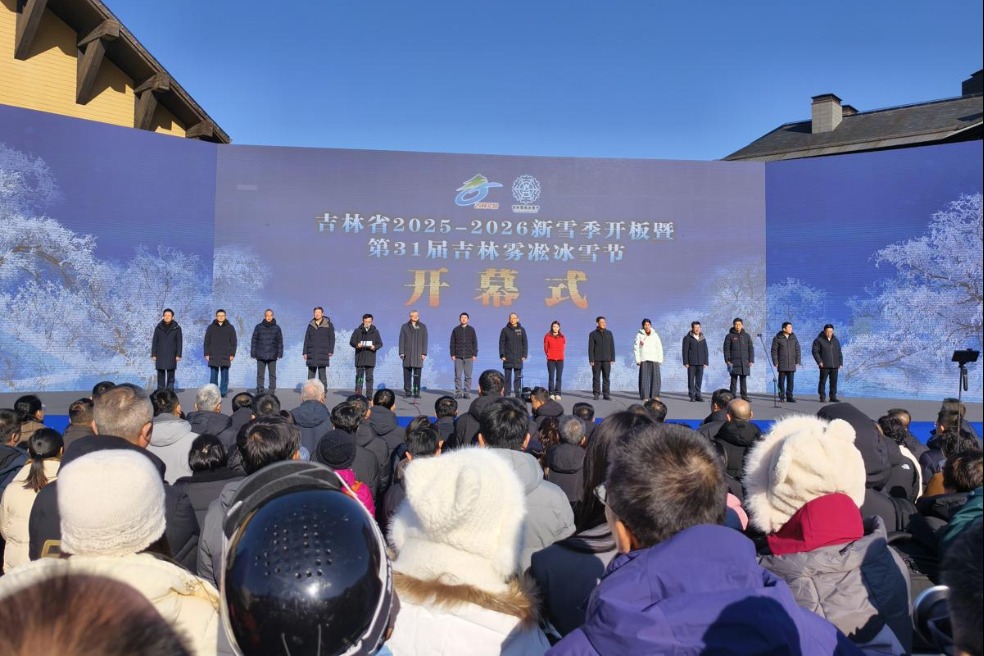Weather data used for medical warnings

Meteorological services in Shanghai are expanding beyond traditional forecasts to the healthcare sector, providing precise early warnings to help prevent acute illnesses and manage chronic diseases.
In the city's Fengxian district, the local meteorological bureau partnered with the disease control and prevention authority as well as community hospitals this year to explore innovative methods for protecting high-risk groups. Through this trilateral collaboration, the parties share meteorological data to identify health risks, efficiently converting them into warning messages sent to companies, communities and individuals.
The partnership generated encouraging results this summer, proving its practical value in preventing heatstroke.
Shanghai experienced a prolonged summer this year. During weather conditions that feature consecutive days of high temperatures and humidity, heatstroke is often fatal for seniors and outdoor workers, including farmers and delivery workers, according to Peng Li, a senior engineer at the Shanghai Key Laboratory of Meteorology and Health.
Peng explained that the team developed an algorithm to analyze and monitor features leading to heatstroke, allowing them to alert targeted groups of risks in advance and advise on prevention measures.
About 300,000 delivery workers at Chinese logistics provider STO Express benefited from the early warnings this summer. Upon opening their mandatory work app, workers received alerts regarding heatstroke risks alongside advice on how to manage them. The company also adjusted working schedules in accordance with different warning levels to ensure safety.
"Official data showed that the number of outdoor workers getting heatstroke this year declined by 40 percent compared with last year," Peng said.
As winter arrives, the partners are working to control chronic respiratory diseases and prevent cardiovascular and cerebrovascular diseases. Peng noted that these diseases rank as the leading causes of death in China. For high-risk groups, both heat waves and cold snaps pose significant threats.
The meteorological bureau informs partner authorities when it observes weather that may raise the risk of such diseases. Upon receiving the information, community family doctors contact high-risk groups and their relatives via warning messages or household visits, providing customized tips on health protection, travel precautions, diet and emergency guidance.
To date, the pilot services have benefited over 2,000 people with chronic cardiovascular and cerebrovascular diseases in two of the district's communities and have received positive feedback, according to the Jinhui town Tairi community health service center.
The district's disease control and prevention authority said public health services are transitioning from a "treatment-centered "approach to a "prevention-centered "approach, noting that the early warning system based on technological advancement is a critical move.
In recent years, Shanghai has ramped up efforts to integrate artificial intelligence and digital methods with traditional meteorological services, aiming to optimize the efficiency and accuracy of forecasts and provide better public services.
Launched in March, the Shanghai Artificial Intelligence Meteorological Applications Innovation Center developed artificial intelligence forecasting models Fuyao and Yushi to help deliver more "flexible, accurate and fast" weather and rain forecasts, said Cao Yuan, a team leader at the Shanghai central meteorological observatory.
Furthermore, under the framework of China's innovative early warning system "MAZU", the city has launched an AI agent called "MAZU-Urban" to provide multihazard early warnings in cities.
wangxin2@chinadaily.com.cn




































